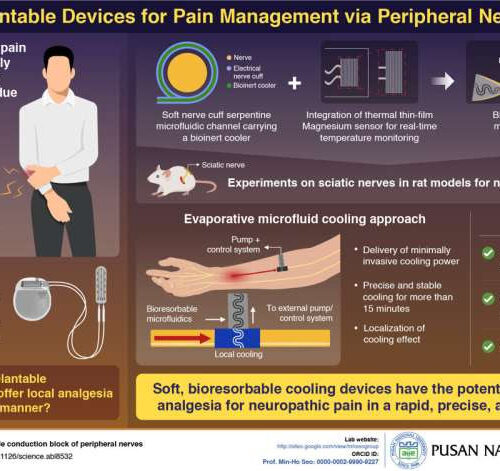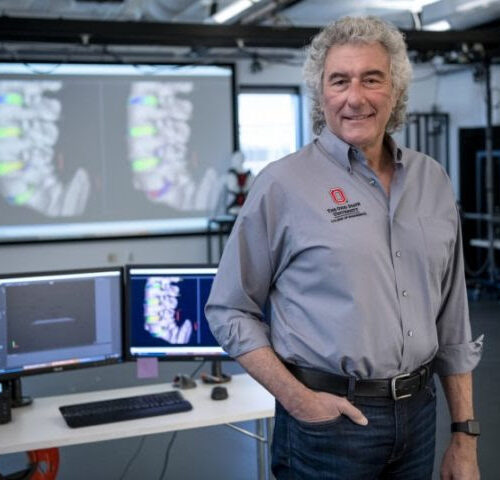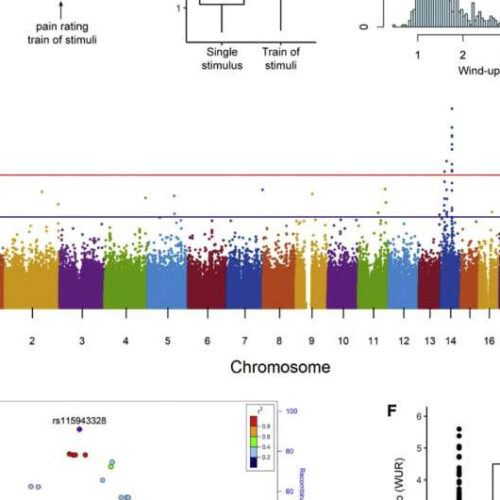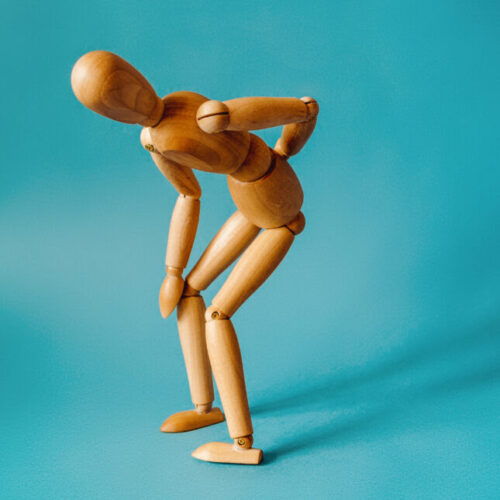by Pusan National University A soft, bioresorbable, implantable device developed by researchers from Pusan National University provides a focused, reversible, and precise cooling effect to block pain signals from peripheral nerves. Credit: Pusan National University Due to their high efficacy, opioids are used widely for the management of neuropathic pain, despite the increasing rates of...
Category: <span>Pain/Inflammation</span>
How new motion-sensing technology may help standardize back-pain care
Digital health systems can tell clinicians when someone’s heart-disease risk calls for a drug to lower cholesterol or whether insulin shots are warranted for a person with type 2 diabetes. William Marras. Image credit: Ohio State University But for millions of low-back pain sufferers, care decisions rely heavily on subjective measures of patient discomfort – often...
Level of trust in doctor may influence patient’s brain responses to pain
UNIVERSITY OF MIAMI When doctors are seen as less trustworthy by their patients it can increase reported pain and pain-related brain activity, new research from the University of Miami suggests. In a study recently published in Cerebral Cortex and led by recent University of Miami Psychology Ph.D. graduate Steven R. Anderson, and Elizabeth Losin, assistant professor of psychology...
An effective new treatment for chronic back pain targets the nervous system
UNIVERSITY OF NEW SOUTH WALES People challenged with chronic back pain have been given hope with a new treatment that focuses on retraining how the back and the brain communicate, a randomised controlled trial run by researchers at UNSW Sydney and Neuroscience Research Australia (NeuRA) and several other Australian and European universities has shown. The...
Brain imaging reveals how mindfulness program boosts pain regulation
by Heather Harris, University of Wisconsin-Madison Credit: Pixabay/CC0 Public Domain Research at the University of Wisconsin–Madison’s Center for Healthy Minds has isolated the changes in pain-related brain activity that follow mindfulness training—pointing a way toward more targeted and precise pain treatment. The study, published today in The American Journal of Psychiatry, identified pathways in the brain...
Hypnosis, meditation are viable alternatives for pain relief
Adults who pursued pain relief through mindfulness-focused meditation and hypnosis had better long-term effects than those who received education in pain management, according to one of the largest studies of its kind on nonpharmaceutical pain control and relief. The findings of this joint UW Medicine/Veterans Affairs Puget Sound Health Care System study were published in the medical journal Pain. The researchers tested the...
Injectable Gel Might Help Relieve Chronic Low-Back Pain Due to Degenerative Disc Disease
By Reuters Staff June 09, 2022 NEW YORK (Reuters Health) – An experimental hydrogel injected into spinal discs appears to relieve pain and improve function in patients with chronic low-back pain caused by degenerative disc disease (DDD), according to an early feasibility study. The hydrogel was successfully and safely injected into all targeted intervertebral discs and led...
Discovery of gene involved in chronic pain creates new treatment target
by University of Oxford Clinical wind-up ratio is associated with SLC8A3/NCX3. (A) Clinical wind-up ratio (WUR) was performed over the mid ventral forearm using a 255-mN von Frey hair and recording a pain rating for a single stimulus followed by a series of 10 stimuli. (B) Boxplots of numerical pain ratings for the single stimulus...
Dietary cholesterol worsens inflammation, sickness in mice with influenza
UNIVERSITY OF ILLINOIS COLLEGE OF AGRICULTURAL, CONSUMER AND ENVIRONMENTAL SCIENCES IMAGE: A UNIVERSITY OF ILLINOIS RESEARCH TEAM FINDS HIGH LEVELS OF DIETARY CHOLESTEROL MAKE MICE SICKER WHEN INFECTED WITH INFLUENZA. L TO R: JOSEPH TINGLING, DREW STEELMAN, AND ALLISON LOUIE CREDIT: LAUREN D. QUINN, UNIVERSITY OF ILLINOIS URBANA, Ill. – New research from the University...
In radical claim, study suggests inflammation wards off chronic pain instead of causing it
By Jason Mast May 11, 2022 ADOBE For two decades, Luda Diatchenko investigated the underlying biology of pain like a detective chasing clue after clue: What role does this gene play? How about that protein? She always wondered, though, what she would find if she could look at how every gene inside a cell behaves...






